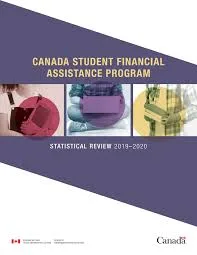Gatineau – All Canadians deserve to have access to health care, no matter where they live. Improving access to health care in rural and remote communities is crucial to ensure Canadians across the country get the quality care they need.
The Government of Canada has pre-published proposed changes to the Canada Student Financial Assistance Regulations and Canada Student Loans Regulations in the Canada Gazette, Part I. These changes would mean more doctors and nurses working in under-served rural and remote communities would become eligible for Canada Student Loans forgiveness.
To help bring more health care workers to the regions that need them the most, the Government is proposing to amend the definition of an “under-served rural and remote community” so that doctors and nurses working in population centres of 30,000 or fewer would be eligible for Canada Student Loan forgiveness. This measure would ensure that changes in the eligibility of communities are updated as new Censuses of Population are released every five years. This expansion is expected to attract over 900 doctors and nurses to work in these communities. All Canadians can comment on the proposed regulations in the Canada Gazette until July 29.
Through the Canada Student Financial Assistance Program, the Government is making higher education more affordable and accessible. Since the fall of 2023, the Government of Canada has increased the maximum amount of forgivable Canada Student Loans by 50% for doctors and nurses who work in under-served rural or remote communities. This increase means family physicians and family medicine residents are now eligible for up to $60,000 in loan forgiveness over five years, and a nurse or nurse practitioner is eligible for up to $30,000 in loan forgiveness over five years.
“Access to health care in rural and remote areas is essential to building strong communities. Today’s changes will give doctors and nurses the support they need to provide quality care to those in our communities who need it the most, while attracting new health professionals to contribute to our growing health care network. This is ensuring Canadians across the country have access to the health care they need.” – Minister of Employment, Workforce Development and Official Languages, Randy Boissonnault








